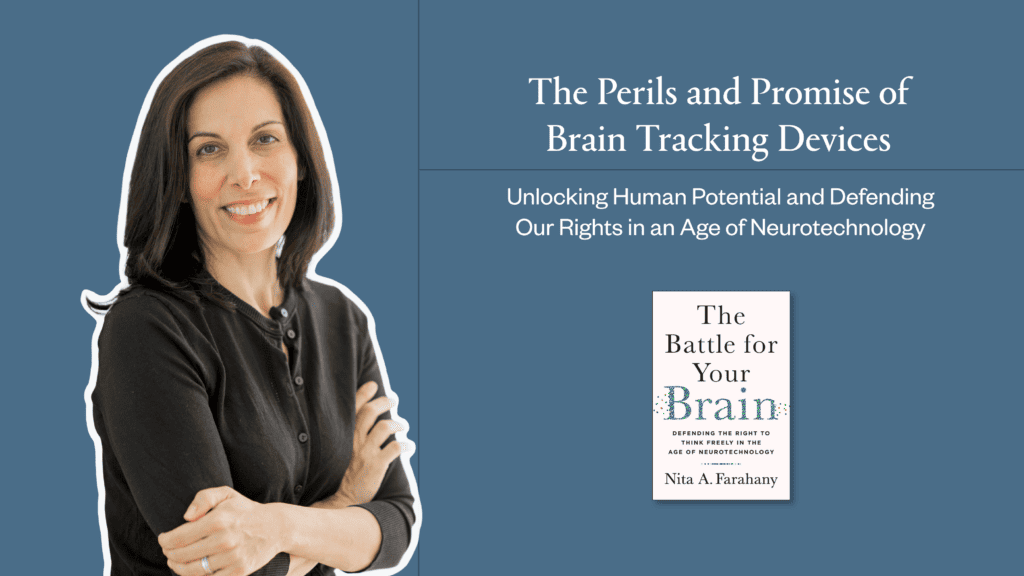Nita is the director of the Duke Initiative for Science & Society. She’s one of the world’s most essential and trusted voices on the rise of these technologies—she even spoke about “cognitive liberty” (the right to freedom of thought) at the recent New York Times DealBook Summit, alongside leaders like Mark Zuckerberg and Volodymyr Zelensky.
A device that tracks your brainwaves can have immense advantages, Nita says. For leaders, it can signal when stress levels are high in the workplace and help you keep morale up; and for workers, it can make you more productive so you have more time for the things that really matter. But we’re at a pivotal moment for these emerging technologies. We need to act today to make sure that we can still maintain our right to freedom of thought and self-determination. “Now is the time,” Nita tells Lavin. “Neurotechnology can transform our lives. I don’t want us to run from it. I want us to figure out a way where the narrative we’re telling five years from now is not surveillance capitalism, but that that was a path we could have gone down—and we chose the other way.”
In this exclusive Lavin video, watch Nita explain how neurotech can boost workplace morale and productivity.
















